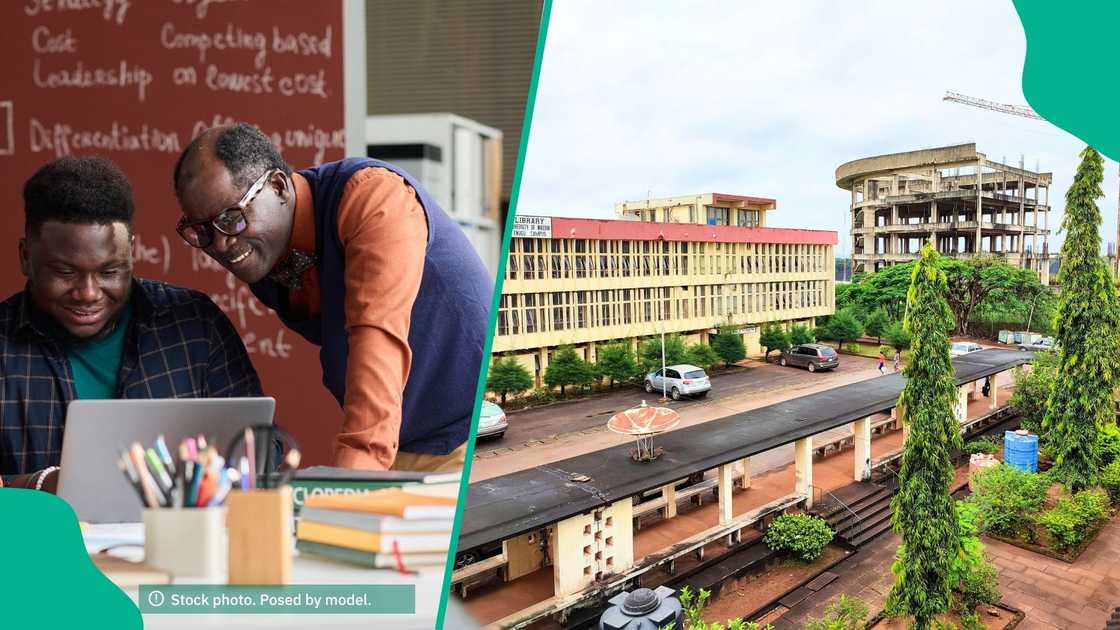When Knowledge No Longer Pays: The Silent Crisis in Nigeria’s Universities
Editor’s note: In this piece, education policy analyst Folaranmi Ajayi draws attention to the worsening struggle within Nigeria’s university system, where professors earn less than a living wage and classrooms lose their best minds to survival. He questions how a nation that underpays its thinkers can hope to build a future of innovation or progress.
There is a quiet crisis unfolding across Nigeria’s universities, one that doesn’t make daily headlines, yet threatens the very core of the nation’s intellectual future. It is the crisis of value: the growing disconnect between the importance of knowledge and the reward for those who produce it.

Source: Getty Images
Today, a full professor in Nigeria earns less than $400 a month. That figure is not only troubling, it is symbolic of a society that has lost its sense of academic worth. While their peers in South Africa earn around $4,800, and those in Kenya or Ghana take home over $1,000, Nigerian academics struggle to survive on wages that no longer reflect the dignity or demands of their work.

Read also
“No time to keep quiet”: Spyro sends message to Nigerian celebrities amid invasion threats by Trump
This disparity is more than an economic statistic; it is a moral indictment. It reveals a system that expects excellence but refuses to pay for it. Once upon a time, Nigerian universities were among the best on the continent, drawing scholars from all over Africa and beyond. Institutions like Ibadan, Nsukka, and Ife were beacons of intellectual prestige. Today, those same universities fight to keep their brightest minds from leaving.
Many lecturers now combine teaching with other jobs just to make ends meet. Research suffers. Laboratories are empty. Promising scholars abandon academia for better-paying roles in the private sector or abroad. And yet, the nation continues to talk about “innovation,” “digital transformation,” and “global competitiveness,” forgetting that none of these is possible without well-motivated teachers and researchers.
How can we expect professors to produce world-class research when they can barely afford internet access or reliable electricity? How do we ask them to mentor the next generation when their own careers have been stripped of dignity and purpose? A professor at the peak of their career should be a symbol of national pride, not an emblem of struggle.

Source: Getty Images
The issue is not merely about money. It is about respect for knowledge. Every advanced country in the world understands that education is the foundation of national development. In Nigeria, however, education is often treated as a liability rather than an investment. The irony is painful: we demand world-class results from lecturers paid at subsistence levels.
Unless the government urgently reforms how it values and funds tertiary education, the future of the Nigerian university system will remain uncertain. The ongoing brain drain is not a temporary problem; it is a symptom of systemic neglect. When the best minds leave, what remains is mediocrity, and mediocrity cannot build a nation.
Nigeria must decide whether it truly wants to compete globally or continue paying lip service to education. Professors and lecturers deserve not just better salaries but renewed respect as the architects of national progress. To restore hope in the university system, the country must first restore dignity to those who sustain it.
Because when knowledge no longer pays, ignorance begins to thrive. And when a nation stops rewarding its thinkers, it starts burying its future.
Folaranmi Ajayi is an educator, journalist, and education policy writer passionate about transforming Nigeria’s education sector.
Disclaimer: The views and opinions expressed here are those of the author and do not necessarily reflect the official policy or position of Legit.ng.
Source: Legit.ng


